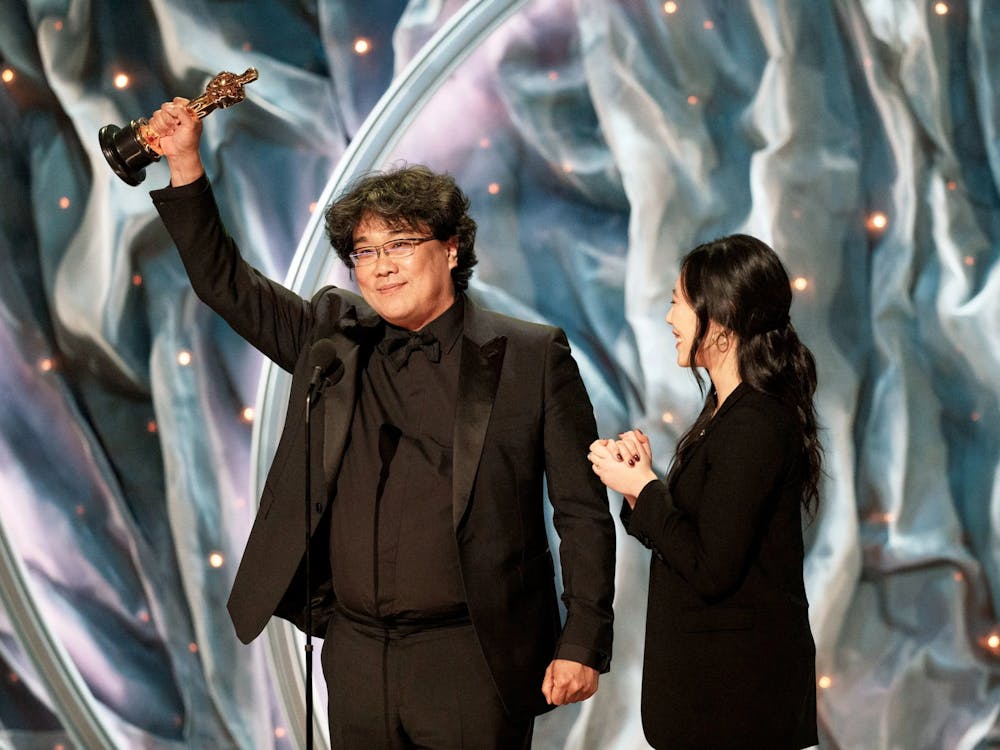The Oscars are still very white and very male, but they feel bad about it, apparently.
The Academy for Motion Picture Arts and Sciences’ reluctance to nominate and recognize excellence in filmmaking by international, female and non-white artists has drawn the ire of the public and industry insiders alike for the past several years. The controversy started in 2015 when the Academy failed to nominate a single non-white actor, spurring the #OscarsSoWhite hashtag. Following a similar debacle in 2016, the Academy restructured to foster more diversity in their membership. And, sure, while certainly better than nothing, an increase from 8% non-white members in 2015 to 16% today isn’t exactly groundbreaking.
When only one actor of color cinched a nomination in 2020 and female directors were shut out entirely, the #OscarsSoWhite rage tweets came back to the forefront. But this time, frustrated film buffs couldn’t even bring themselves to sit through the awards show that once drew as much attention as the Super Bowl among the arts community. Viewership reached an all-time low this year, dropping to 23.6 million from 2019’s record low of 26.5 million.
Throughout last Sunday’s ceremony, the film industry was clearly well aware of the controversy and frustration. Acts of subtle and not-so-subtle protest punctuated the evening, from Natalie Portman’s red carpet cape featuring the names of snubbed female directors to Janelle Monáe’s wonderfully theatric opening number highlighting black and female-led films (such as Greta Gerwig’s “Little Women” and Jordan Peele’s “Us”). And, once the awards themselves got underway, indigenous filmmaker Taika Waititi won Best Adapted Screenplay for “Jojo Rabbit” and South Korean director Bong Joon-ho’s “Parasite” came away with an impressive four awards, including Best Picture.
While these displays of representation are great, it’s hard not to wonder if they’re a form of damage control for an industry giant whose reputation has been marred by the ongoing controversy surrounding the (lack of) diversity in the films that they recognize. 2019 was a particularly impressive year for female and non-white members of the film industry, with notable performances by Asian American rapper and comedian Awkwafina (“The Farewell”), Kenyan Mexican actress Lupita Nyong’o (“Us”) and Puerto Rican American actress and singer Jennifer Lopez (“Hustlers”), as well as directorial excellence by Greta Gerwig (“Little Women”) among many others.
That’s not to say the praise for “Parasite” is unwarranted, though. It’s a true masterpiece that packs profound social commentary into a story that is hilarious and haunting all at once. “Hair Love” also shines as a heart-warming short film, and there’s no denying the masterful cinematography of “1917.” For the most part, the winning movies are fantastic, but are they necessarily better than the snubbed works that don’t meet the Academy’s standard of an “Oscar-worthy” movie? That’s up for debate.
There’s an unspoken understanding that an “Oscar-worthy” film must focus primarily on white males. Take Joaquin Phoenix’s Best Actor-winning “Joker,” for example. Focused around the titular character’s alienation from society and eventual descent into super-villainy, the film puts a borderline unhealthy emphasis on making the audience empathize with a poorly-behaved white man. Meanwhile, stories that confront racial or gender-based issues like “Us” or “Hustlers” go unacknowledged. Even the Academy’s praise for Cynthia Ervio’s titular role in “Harriet” leaves something to be desired, as the only black narrative the Academy highlights is one of slavery and strife.
The Academy knows that the lack of diversity among its nominees is a systemic issue. The apologetic, self-deprecating mood that overtook this weekend’s proceedings made that clear, as presenters made jabs at the lack of black nominees and Janelle Monáe snuck the iconic “Oscars So White” rallying cry into her opening number. However, the question still remains of what the Academy is going to do about it, or if it will do anything about it at all.
As cinema becomes more accessible to both watch and create, the film industry is transforming at breakneck speed. Filmmakers and movie buffs alike are connecting with movies that represent them in new ways as frequently-underrepresented groups start to tell their own stories through film. As the Academy continues to overlook and belittle these non-white, non-male stories, the continued snubs and subsequent placating gimmicks are becoming harder and harder to ignore.
Filmmaking is an incredibly diverse art, representing an equally diverse group of movie-lovers and artists. Until the Academy steps up to honor this diversity in its nominations, instead of in half-hearted lip service on awards night, the Oscars are doomed to continue their disjointed, haphazard floundering toward irrelevance.
Get The Chronicle straight to your inbox
Sign up for our weekly newsletter. Cancel at any time.

